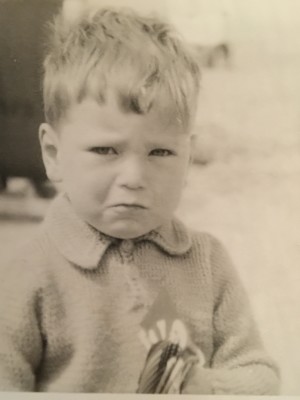Many financial decisions are harder than they need to be
Many people are not good with financial decisions. Some believe it is because they have never been any good at maths. But I blame the parents 🙂
December 1972
Like you, my parents had lied to me for years. The end to my parents well meaning lies came in December 1972. I had passed my 11+ and joined Farnworth Grammar School in the September. By the end of my first term, Father Christmas had become a character of ridicule. My illusion had been shattered. That fat old jolly man in a red suit, dropping down our chimney with the black & white portable TV I had asked for; he didn’t really exist. I should have known really – the chimney had been blocked up years ago.
I was with my parents in Bolton when they bought me “Gilbert O’Sullivan – Back to Front” from Woolworths. I couldn’t listen to his No.1 hit, “Clare”, when I got home as the album was being sent to Father Christmas. Other worldly wise kids at school had told me that “Sent to Father Christmas” was in fact code for “It will be in your parent’s wardrobe”. I peeped, they were right, Father Christmas was no more.
The Age of Innocence
When we are born we are not aware of the concept of cash. Everything is free. Free food, free nappies, free NHS orange concentrate. I know it’s hard to imagine now, but there was indeed a time before we knew money existed. Almost from the time we learn to talk we start to make demands. I want, I want, I want. Our parents try to negotiate for years. Picture the scene.
Howard drops his bike and runs into the house at the sound of the ice-cream van.
Howard (Age 4) I want a lolly please.
Mum You had one yesterday.
Howard (Age 4) I want a lolly please.
Mum No. It’s bad for your teeth.
Howard (Age 4) I want a lolly please.
Mum It will spoil your tea. (We never referred to the evening meal as dinner. Dinner was lunch, complete with dinner-ladies. Duh. Obvious)
Many of these answers seemed to make sense to me to begin with, but when we are young we just keep asking. But my Mum wasn’t trying to ensure my weight stayed down, that I didn’t need any fillings or that I would eat my greens. The fact was lollies cost money and she knew I didn’t know what money was. The lolly was going to cost money that she didn’t want to spend.
Eventually I grew up a bit, I was allowed to go to the ice-cream van on my own with a few pennies from Mum’s purse. I knew Zoom lollies cost 3d. I just kept on asking for things and in exasperation all reason was exhausted and the cryptic answers started to appear. All these answers were initially complete nonsense to me. What was money and where did it come from?
Here’s what I already knew because my Mum had told me.
- She wasn’t made of money.
- Money didn’t grow on trees.
- For some reason it came in on Thursday evenings in a brown envelope.
When I asked for something much more expensive, then that was different. A black & white portable TV? Better send a letter to Father Christmas.
The Age of Pain
I know many of you were lied to also. We should set up a regression therapy group together. Actually I hope you are reminiscing and chuckling about your first experience of money. I don’t think I know of anybody with a positive first impression of money. Money appeared on the radar when we were told by our parents that they couldn’t afford to buy us something. It was a painful experience. Let’s look at how money was described back then.
- Money is the root of all evil
- Money can’t buy you happiness
All very negative and with no motivation to try to earn some money.
Now the Science Part
Many of the things we learn’t when we were young we never forget. Our parents were busy hard-wiring us during our formative years. Years where money was at best kept secret and at worse the subject of constant lies.
Our primitive unconscious brain is fully complete by around age 7. It’s the fight, flight or freeze part which is there to keep us safe. Seen a Tiger? That’s easy. Run! Big kid steals your dinner money? Bit harder. Probably not run, let’s fight. Freeze and he will do it again and again.
Now as we grow up we can more or less forget about large game cats in the North West and about Stephen Murphy, but our primitive brain never switches off. It’s there to keep us safe so it will never rest. The dangers just change as we age. Dangers today often come with a £ sign in front of them. Financial fight, flight or freeze decisions need to be made. The decision today could be; What level of income can I draw from my pension without it running out? -or- Should I invest in the dangerous stock market because I can’t earn any interest in the bank?
We try to think our problems through, but we think this is a maths problem and we remember we were never any good at maths. Often we receive too much information and the decision is not clear cut. Our conscious brain gives up trying and our unconscious brain kicks in. The very same unconscious brain that was complete by age 7 when money didn’t even exist in our lives. We need help to sort all of this out.
The Solution
I’m here to offer continuing help to my clients. Understanding why it is hard to make these decisions is the start. There is no magical one size fits all solution though. We are all hard-wired, we can’t just re-write that bit of programming installed by our parents all those years ago. I don’t care what age you are, in my experience difficult financial decisions never get any easier. We need to understand that our brain is working against us to keep us “safe”. It’s not usually about the maths.

